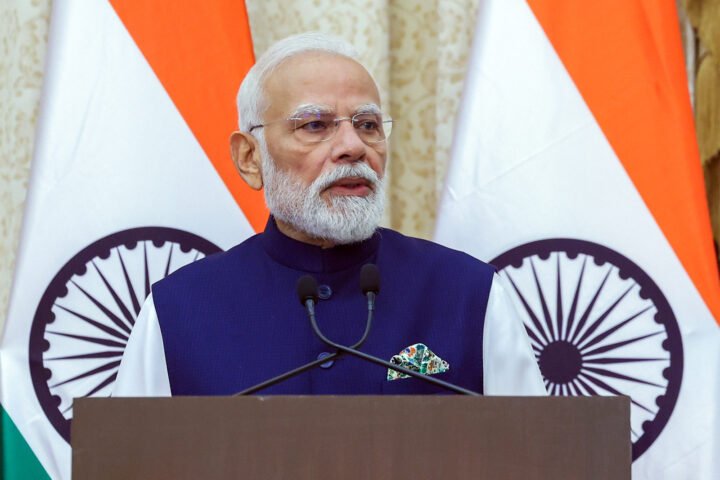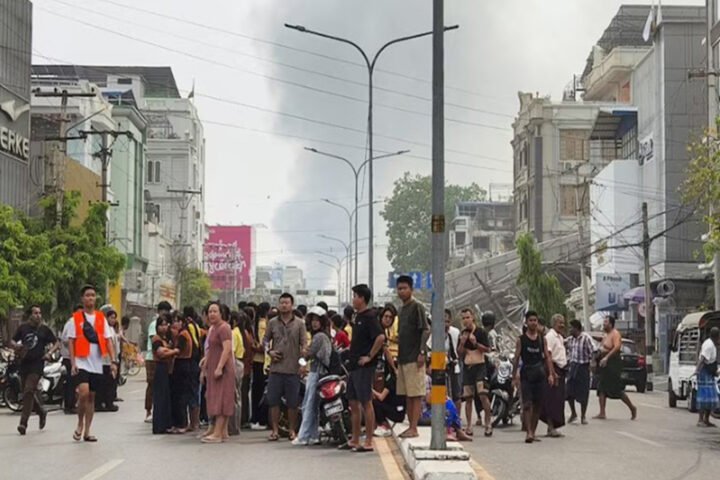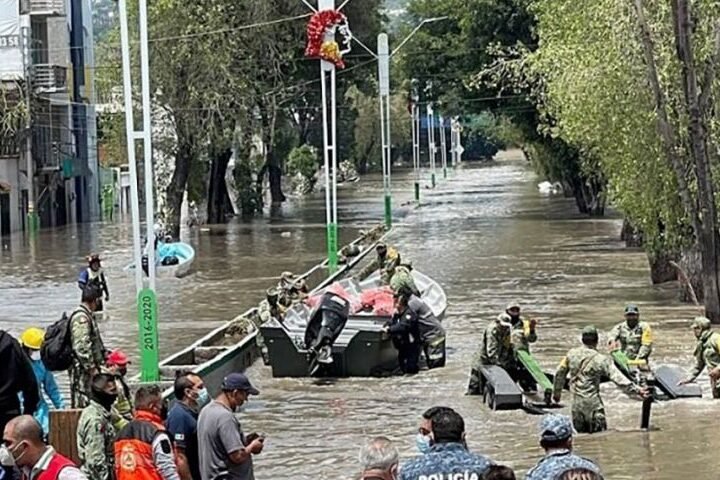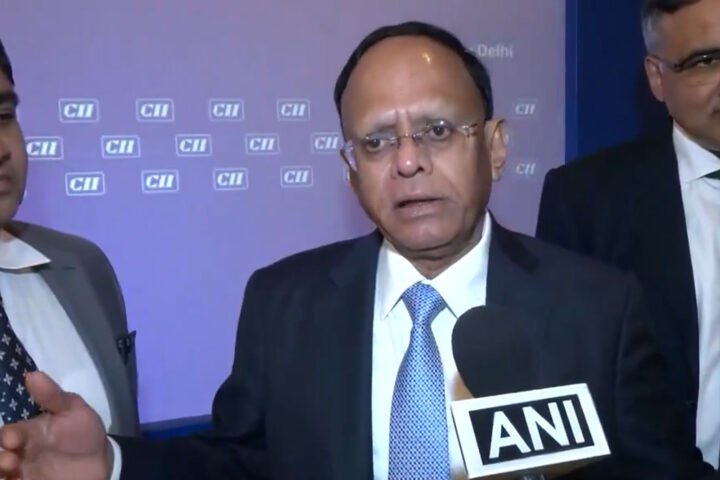In the case of the Israeli-Gaza conflict that started in October 2023, Jordan’s interests are as much threatened as they were when the country lost the West Bank in 1967. The public demonstrations following this crisis are greater in number than those in the Arab Spring. Iran has attempted to cause the conflict to spread to Jordan by helping the militia in Iraq, leading to protests in Jordan, and by using Jordanian airspace for strikes on Israel. As a reaction, Amman is focusing on reducing the conflict by implementing activist diplomacy.
Jordan’s views towards PalestineCriticism of Israeli military actionsHumanitarian and diplomatic role of JordanEnd up
Thousands of Palestinian refugees arriving from the West Bank into Jordan, together with UNRWA coming to an end, means many Palestinian refugees will lose important services in Jordan. Jordan is concerned about the potential loss of custodianship over holy sites in Jerusalem and possible disruptions to water and energy supplies from Israel. These are all scenarios that the government views as increasing the risk of a doomsday scenario, which it has feared for many years.
Jordan’s views towards Palestine
As soon as the Hamas-Israel war broke out, Jordan took a strong stance against the potential relocation of Palestinians to Egypt and Jordan. King Abdullah II bin Al-Hussein of Jordan proclaimed the relocation a “red line.” Any action by Israel to evict Palestinians from Gaza or the West Bank would be seen as a hostile act against Jordan, according to Prime Minister Bisher Al-Khasawneh.
Jordanian Foreign Minister Ayman Safadi has made these beliefs clear on many occasions. If tensions between countries worsen, Jordan, which sits between strong regional powers, could face major challenges in its social, political, and economic life. Jordan’s current challenges make any regional actions, including an Israeli assault on Rafah or more tension between Iran and Israel, likely to cause major problems within the country.
Jordan has made its assistance distribution efforts in the beleaguered enclave public and has advocated for a ceasefire in Israel’s war on Gaza. However, the large number of demonstrators who have gathered outside the US and Israeli embassies has not been placated by that. Terminating ties with the US and Israel is one of their demands. Since Israel’s attack on Gaza left over 34,000 Palestinians dead on October 7, protests in Jordan have gone up and down.
Jordan is strongly dedicated to a fair two-state peace with East Jerusalem as the capital of a free Palestine. Part of their message is that Jordan should go to the Jordanians, and Palestine should go to the Palestinians. Ray takes a stand against any moves to expel Palestinians from Gaza and the West Bank. Representatives such as King Abdullah II and Minister Safadi have frequently criticized actions in Gaza by Israel, asked for a ceasefire, and said protecting Palestinian citizens is essential.
Criticism of Israeli military actions
Jordan expressed views that Israel’s military actions around Gaza and the siege during the 2023 conflict were acts of collective punishment with tragic consequences for Palestinians. The country demanded a serious response by recalling its ambassador from Israel and preventing Israel’s ambassador from coming back. The administration has rejected Israeli assaults aimed at ambulances and safe parts of Gaza.
Despite disapproval and public attention in Jordan, the country has upheld its peace accord with Israel since 1994, since nearly half of the population there is Palestinian. The monarchy seeks to balance security priorities, including cooperation with Israel, and the people’s kindness toward Palestinians. Because he wanted to maintain Jordan’s safety and stability, King Abdullah II did not approve of revoking the peace pact.
Humanitarian and diplomatic role of Jordan
In the Israeli-Palestinian conflict, Jordan is a crucial peacemaker and mediator. It has allowed humanitarian aid and advocated for international assistance to restore Gaza. The necessity of a ceasefire and a diplomatic resolution that takes into account Palestinian rights and regional security is emphasized by Jordan’s leadership. It is Jordan’s view that expelling Palestinians from Gaza to other countries is intolerable and unfair to Palestinians. Jordan believes in this position, since he feels sure that peace should come from political actions, not by forcing people to leave, and suggests Palestinians stay in their historical lands.
1. Has the government in Jordan recently adjusted its policy towards Israel?
Indeed, lately, Jordan’s government has shown a much stronger level of opposition to Israel’s actions, which has led to a major drop in their relationship. It especially happened after Hamas attacked on October 7, 2023, leading to a war in Gaza.
2. Strong condemnations and diplomatic downgrading
Jordan publicly denounced Israel’s actions in Gaza, recalling its ambassador and canceling a summit with President Biden. Although it is still non-binding, a resolution advocating for a quick humanitarian truce and the ceasefire was passed by the UN under the leadership of Foreign Minister Ayman Safadi with support from 120 nations. When Crown Prince Hussein protests Israeli killings of civilians and helps send aid to Gaza, Jordanians talk about Israel in a much harsher manner. Israel’s attempt to push Palestinians out has been seen by Jordan as “a declaration of war,” a phrase that hasn’t been used since the 1994 peace pact.
3. Keeping a balance in the face of regional tensions
Even though Jordan respects the terms of its peace agreement with Israel and still cooperates quietly on security, the two nations have strained diplomatic ties. Officials are managing issues related to regional safety, well-preparedness for Palestinians, and valuable support from the US. Jordan has declined to cut ties, but it has made it clear it will if thousands of Palestinians are driven out.
4. Concerns regarding regional stability and Israeli policies
Issues that worry Jordan include the right-wing government’s policies causing settler violence, the possible Israeli annexation of the West Bank, and military operations accused of being ethnic cleansing. Jordan has become less skilled at diplomacy and more demanding in criticizing what Israel does.
To handle threats to both countries’ security, Jordan and Israel continue to coordinate border security and share intelligence behind the scenes. To please home audiences and regional friends, Jordanian leaders frequently condemn Israeli policy. This happens because Jordan manages foreign relations and stability in the country at the same time. Jordan firmly stands against Palestinian deportation to Jordan and backs both a ceasefire and efforts to help Palestinians in Gaza with aid.
The General Assembly also declares that Israeli attempts to take over the West Bank threaten Jordan’s safety and the viability of the core two-state agreement. To secure stability, Jordan holds relationships with regional powers Iran, Syria, and those in the Gulf, even while dealing with various demands.
Since Palestinians make up about half of the Jordanian population, Jordan’s people look to the government to take serious action against Israel. Large demonstrations have called for Israel’s envoy to be expelled and the peace pact to be scrapped. The monarchy needs to handle these forces well to guarantee the country’s stability and that of the area. However, Jordan is still dependent on American military and economic assistance, which prevents significant changes.
End up
Jordan strongly rejects Israeli military actions that harm civilians and backs the hopes of Palestinians for statehood. As it tries to satisfy different internal needs, keep the region secure, and solve conflicts between Israel and others, Jordan upholds the peace treaty and cooperates on security with Israel.










